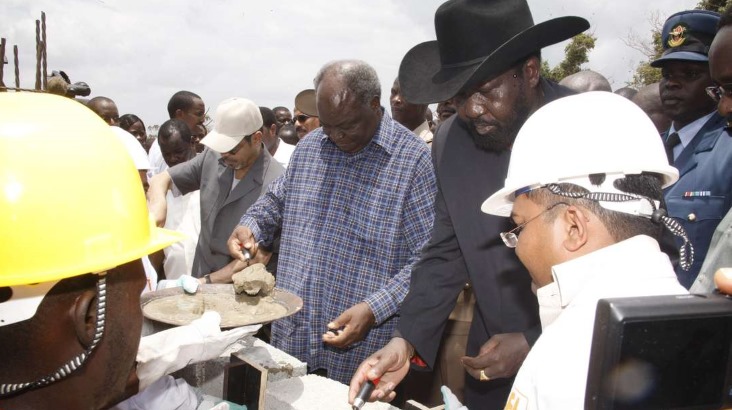Infrastructure
Why Private Investors Stay Away From State Projects
Slow approvals of Public Private Partnerships usually puts off high quality investors.

Public sector bureaucracies are blamed for the slow implementation of projects, as intricate approval procedures deter private investors from government projects.
According to Lamu Port South Sudan, Ethiopia Transport (Lapsset) corridor chairman Francis Muthaura, the Public Private Partnership Act that was legislated in 2013 should be reviewed urgently to cut bureaucracy and speed up the execution of projects.
“The problem is bureaucracy. [Public Private Partnership] takes too long to realise its objectives. The attention span for the private sector is short, they just look for opportunities, ” Mr Muthaura said at a recent function at the Kenya School of Government, Matuga.
He said that although many countries had made great strides due to the proper execution of PPPs, Kenya was being left behind due to slow approvals that put off high-quality investors.
“If you are oversensitive then you may never make any decision. On Lapsset where most of our projects are supposed to be implemented through PPP, many of the proposals we have made have not taken off, so there is a problem,” the Lapsset chairman said.
Mr Muthaura however assured that construction of the Sh2.5 trillion Lapsset project remains on course with its completion still scheduled to take place by 2030.
The development, a critical Kenya Vision 2030 project since March 2012, includes Lamu port, an 880 km superhighway, a 1,710 km railway line, an oil refinery, and a 2,240 km oil pipeline connecting South Sudan oil fields to the Lamu Port refinery.
Other components of the project include the construction of three resort cities at Isiolo, Lamu and Lokichoggio, the construction of airports in the resort cities and the development of associated infrastructure such as a 1,100MW power line and a 185 km water supply line.
RELATED: Chinese Win Praise from Kenyans for Mega Projects
Although Lapsset is a 20-year project, most of the projects were expected to be completed by 2015 but this did not happen due to various reasons among them land acquisition challenges.
Several benchmarks have, however, been completed. These include highways such as the one from Isiolo to Moyale. Kenya has also signed an agreement with a South African consortium to build a highway from Lamu to Isiolo, Mr Muthaura said.
Construction of the first three berths at the Lamu Port is currently ongoing, with the first berth expected to be complete by June, and the remaining two berths set for completion in 2020.
The Lapsset corridor project is expected to integrate the economies of Kenya, South Sudan and Ethiopia while opening up the region to global trade opportunities with emerging economies.
Like Mr Muthaura, President Uhuru Kenyatta has recently voiced his frustration with bureaucracy. During the EAC Heads of State Summit in Kampala, Uganda, last month, he urged governments in the region to ease the process of working with the private sector.
“I am a strong believer in PPP. But I have a problem of bureaucracy in government which frustrates our development partners,” he said.
He noted that expediting approvals of mega projects would show that the region is serious about fixing its infrastructure projects thereby attracting a big number of investors.
PPPs are arrangements where a private party performs a public function or service for a contracting authority, assuming the risks as per the project terms.
RELATED: Lamu Port Hits New Milestone With First Berth Completion
Like Kenya, a growing number of countries have formally adopted a framework for public-private partnerships in their laws.
Before the enactment of the PPP Act, most projects were undertaken under the prevailing public procurement laws.
The enactment of the PPP Act and subsequent laws under it sought to institutionalise the PPP process and establish organs such as the PPP Unit, the PPP Committee, and the PPP Nodes.
Since the enactment of the Act, the PPP laws have gone through a transformation over the years with the passing of regulations further providing clarity as to the PPP process in Kenya.
According to the Benchmarking PPP Procurement 2017 released by the World Bank, Kenya has a robust PPP framework supporting many current projects.
These include the Lapsset corridor, the Nairobi-Mombasa expressway O&M contract, the Kisumu Sea Port project, and the Student Hostels PPP.














